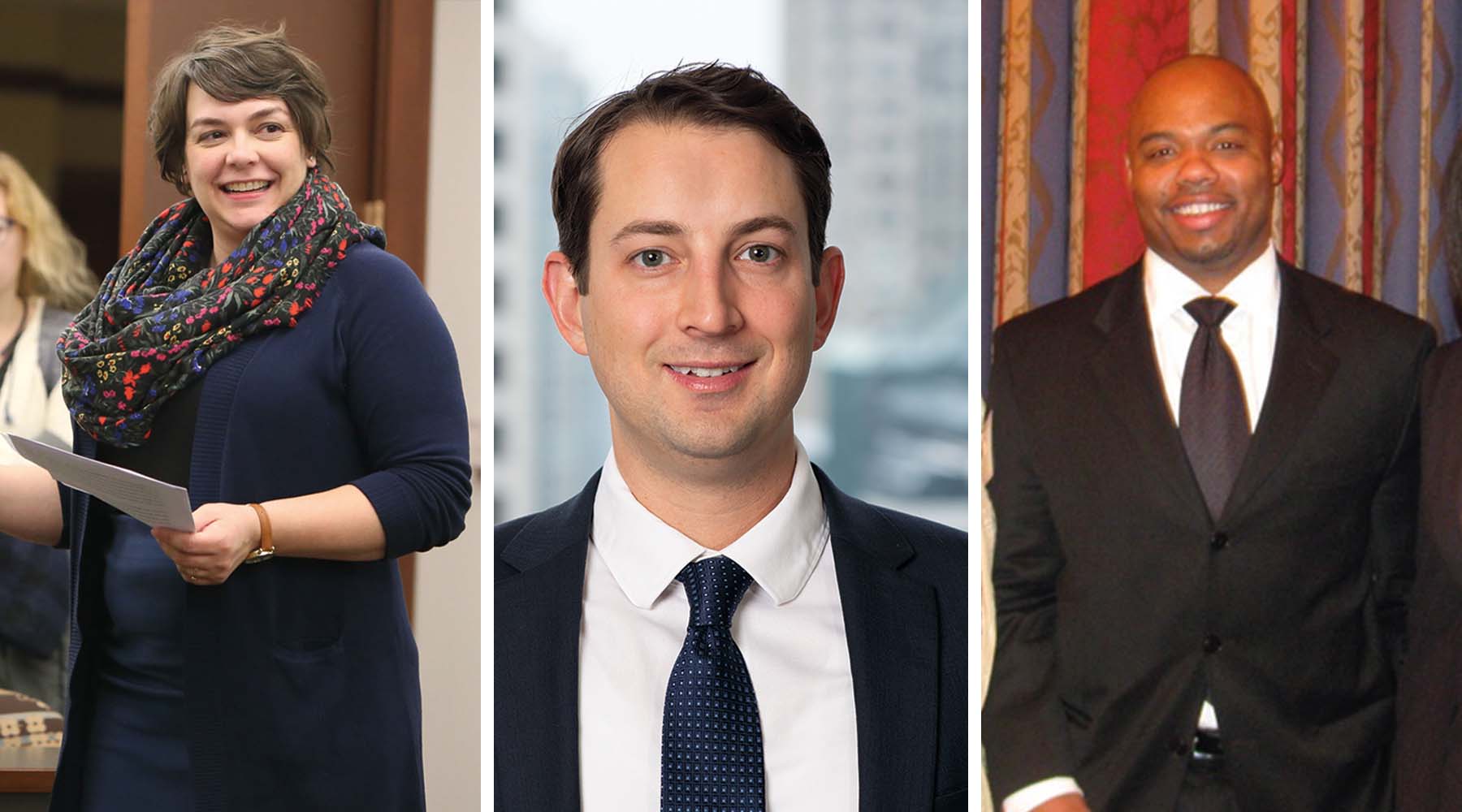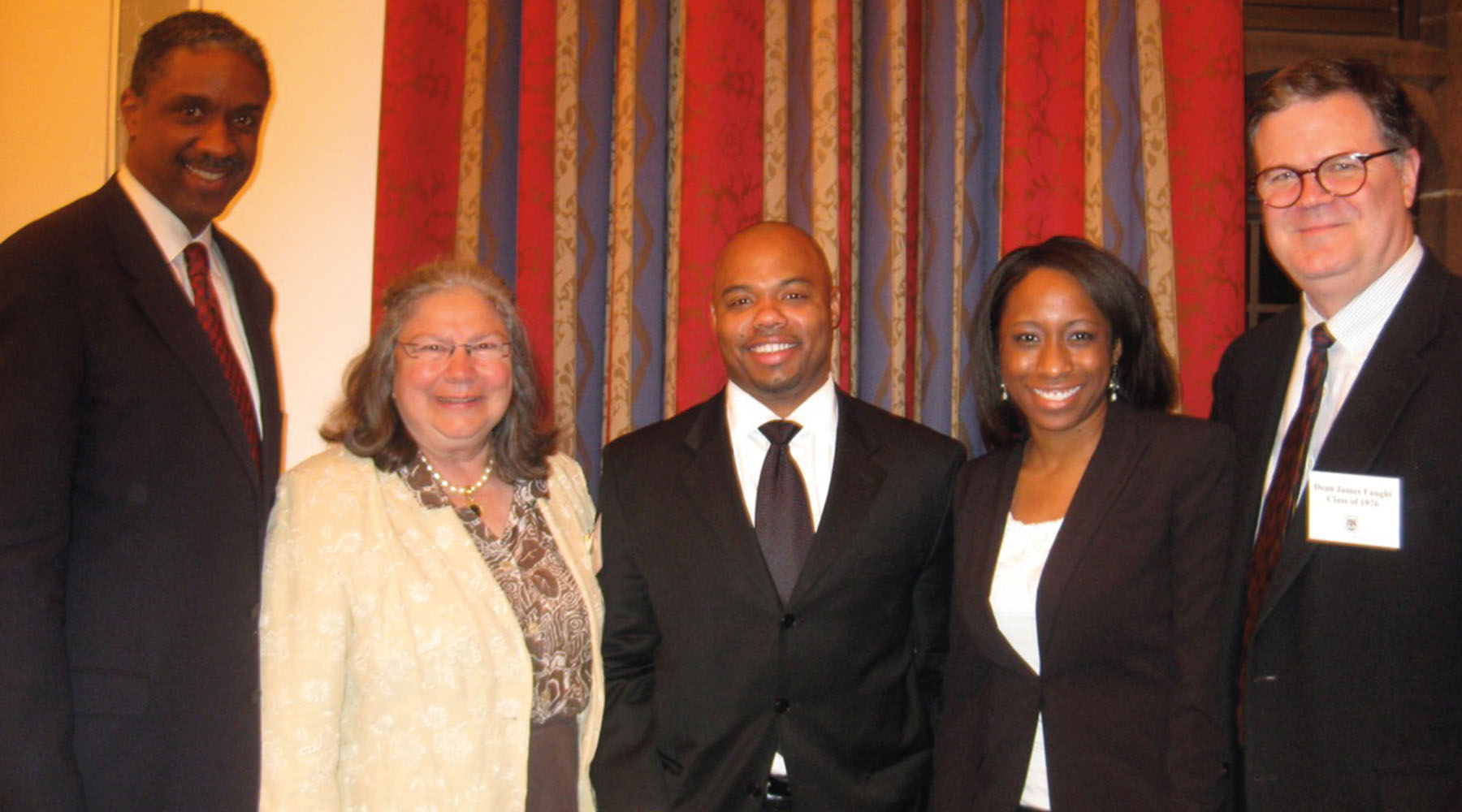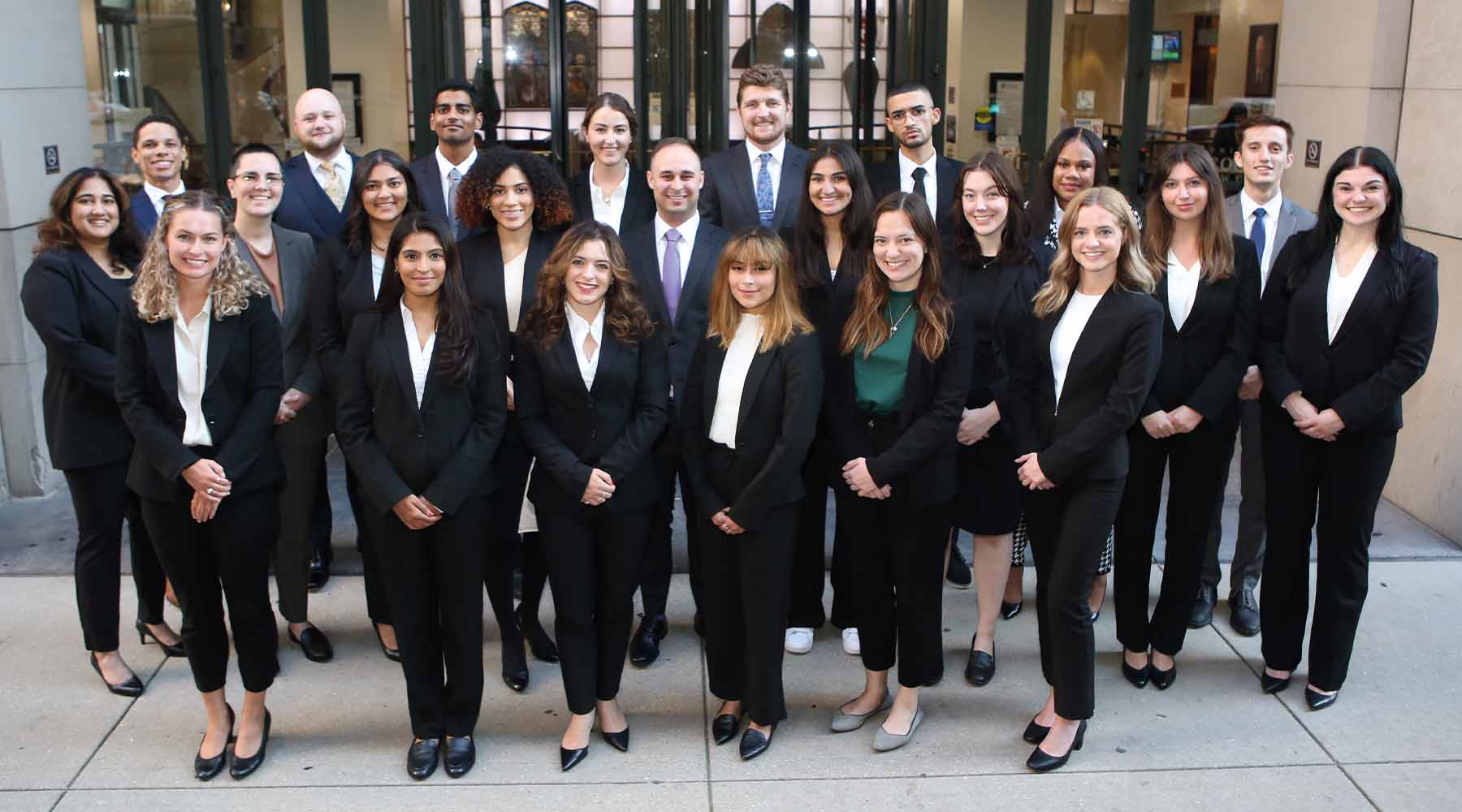Honoring homegrown talent
Loyola’s advocacy program develops students—and coaches
As a Loyola 1L, Rae Kyritsi (JD ‘12) already knew she wanted to be a professional mediator. She told Maureen Kieffer, now the School of Law’s assistant dean for career services. Although dispute resolution wasn’t on the office’s list of externship options at the time, Kieffer recommended that Kyritsi contact Chicago’s Center for Conflict Resolution (CCR).
“I certified to be a volunteer mediator in my rising 2L summer,” Kyritsi recalls. “I was able to mediate real-life cases throughout my last two years of law school, and Maureen helped make that happen. I felt supported in my career by Loyola even before I started looking for a job.”
It was the beginning of a common journey in Loyola’s advocacy program: from student to coach to adjunct faculty member. Today, as programs director for the CCR, Kyritsi says the support she received as a student has continued throughout her work as an adjunct and former coach of Loyola’s Willem C. Vis International Commercial Arbitration Moot teams. Loyola’s advocacy program places a high premium on nurturing homegrown talent by recruiting top competitors on Loyola’s moot court, mock trial, and dispute resolution teams to coach the students who come after them—and to become respected faculty members who bring their professional expertise to the classroom.
“At Loyola, we provide our advocacy coaches with recognition and status through annual awards and appointments as adjunct faculty,” says Zelda B. Harris, director of Loyola’s Dan K. Webb Center for Advocacy.
Kyritsi adds, “As a coach and adjunct, I’ve had the experience of being highly valued and receiving opportunities to grow my instruction and training skills. I chose Loyola for a lot of reasons—and I feel like Loyola continues to choose me.”






